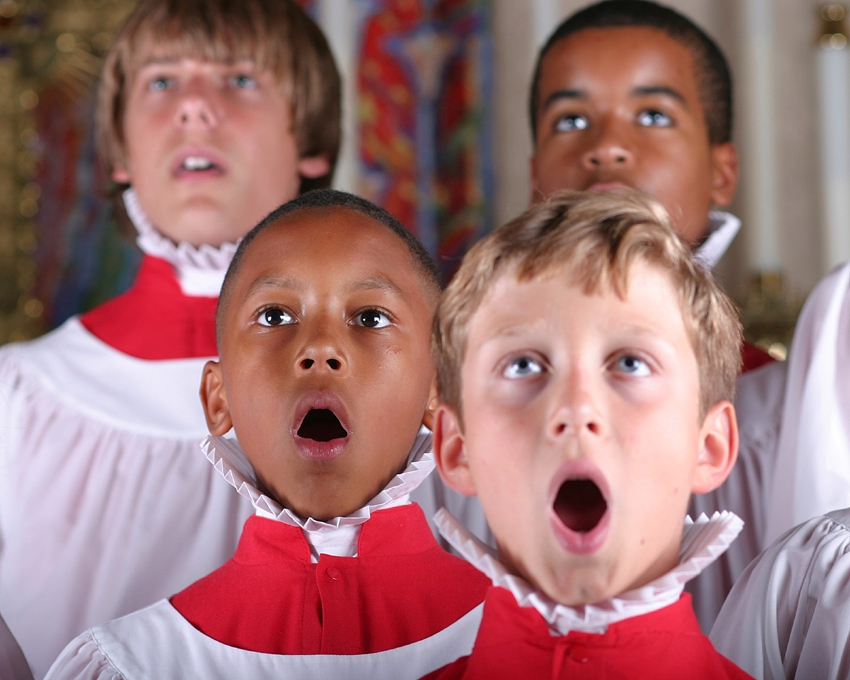The term "choir boy" often evokes images of youthful innocence, melodious voices, and a deep connection to spirituality. These young singers hold a special place in church services, school performances, and even concert halls, captivating audiences with their angelic harmonies. As we delve into the world of choir boys, we will explore their significance, the history behind the tradition, and the personal journeys of those who have embraced this role. Join us as we uncover the various facets of being a choir boy and celebrate the impact they have on both music and community.
Being a choir boy is not merely about singing; it is about being part of a longstanding tradition that intertwines music with personal development. Choir boys often learn discipline, teamwork, and emotional expression through their involvement in choral music. In this article, we will examine the experiences that mold these young individuals, the challenges they face, and the rewards they reap. From the rehearsal room to the performance stage, the life of a choir boy is filled with rich experiences that shape their character and nurture their passions.
As we embark on this exploration, we will also look at the cultural significance of choir boys across different societies. With various beliefs and practices surrounding choral music, choir boys serve as vital links between tradition and modernity. Their voices resonate not just within the walls of churches but also echo in the hearts of those who listen. Let’s dive deeper into the essence of being a choir boy and discover what sets this unique experience apart from other musical pursuits.
What is the History of the Choir Boy Tradition?
The tradition of choir boys dates back centuries, with its roots in religious practices. In early Christian liturgies, young boys were often tasked with singing hymns and psalms during services. This custom evolved into formal choirs where boys would undergo training to hone their vocal skills and learn about music theory. Over time, choir boys became an essential part of church services, enhancing the spiritual atmosphere with their angelic voices.
How Do Choir Boys Contribute to Their Communities?
Choir boys play a significant role in their communities beyond just singing in church. Their contributions include:
- Participating in community events and celebrations
- Leading charitable initiatives through fundraising and outreach
- Serving as role models for younger children in their neighborhoods
- Bringing joy and inspiration through public performances
Who Are Some Notable Choir Boys in History?
Throughout history, several individuals who started as choir boys have gone on to achieve remarkable success in the world of music and beyond. Some notable figures include:
- Benjamin Britten – A renowned composer and conductor who began his musical journey as a choir boy.
- John Rutter – A celebrated composer and conductor famous for his choral compositions.
- Elijah Wood – The actor who had a brief stint as a choir boy during his childhood.
What Are the Personal Experiences of Choir Boys?
The personal experiences of choir boys can vary widely; however, many share common themes of camaraderie, growth, and passion for music. The friendships forged during rehearsals and performances often last a lifetime. Choir boys frequently recount their feelings of pride and accomplishment when performing before an audience, as well as the exhilaration of mastering challenging pieces.
How Does Being a Choir Boy Impact Personal Development?
Participating in a choir fosters numerous personal development opportunities for young boys, including:
- Improved communication skills through collaboration with peers
- Increased self-confidence gained from performing in front of audiences
- Enhanced discipline and responsibility through regular practice and commitment
- Emotional growth by expressing feelings through music
What Challenges Do Choir Boys Face?
While being a choir boy is often a rewarding experience, it is not without its challenges. Some choir boys may struggle with:
- Balancing academic responsibilities alongside choir commitments
- Facing performance anxiety before a show
- Dealing with peer pressure and expectations from adults
- Experiencing vocal changes during adolescence, impacting their singing
What Is the Future of Choir Boys in Modern Society?
The future of choir boys remains bright as music continues to play a vital role in various communities. Many organizations are dedicated to preserving the choir boy tradition while adapting to modern times. With advancements in technology, choir boys can now reach broader audiences through online performances and social media platforms, ensuring that their voices resonate with people worldwide.
How Can Young Boys Get Involved in Choirs?
For young boys interested in becoming choir boys, there are several pathways to getting involved:
- Joining local church choirs or community music programs
- Participating in school choirs or music classes
- Attending summer music camps focused on choral singing
- Seeking mentorship from experienced choir members or conductors
What Are the Key Takeaways About Choir Boys?
In summary, the choir boy tradition is a rich and meaningful aspect of musical history. Choir boys not only contribute to the beauty of choral music but also experience personal growth and community engagement. Whether through their soothing melodies or the camaraderie they build, choir boys continue to leave a lasting impression on the world around them.
You Might Also Like
Unveiling The Journey Of AJ Wilkerson: A Multi-Talented InnovatorUnveiling The Life And Career Of Samantha Ireland
Unfolding The Journey Of Ethan Page: A Wrestling Sensation
Unveiling The Life And Career Of Richard Cabral
Discovering The Sweet Vibes Of Lil Yummy
Article Recommendations
- Nancy Pelosi Wedding Pictures
- Jennifer Garner James Garner Related
- Paul Walker Died
- Taylor Swift Barbie
- Juan Manuelizquierdo
- Kenneth Petty Wikipedia
- Alex Lagina And Miriam Amirault Wedding
- Tony Vitello Wife
- Bollyflix
- Is Mitch From Lenox Hill Still Alive 2024


